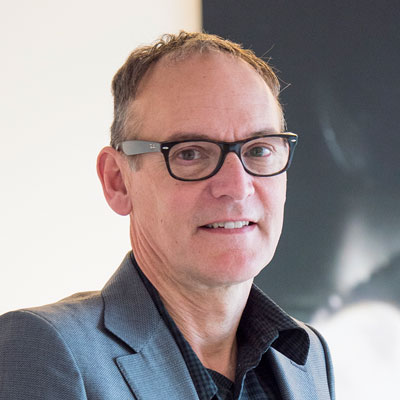10 things I hate about proteomics
Abstract
Despite the title, says Dr. Williams, “this presentation is about my romance with proteomics.” From myths about assay size (and why it’s annoying when people say, “3,000 proteins is enough”) to the issue surrounding cis pQTLs (and why they’re “a nice party trick, but mostly biologically boring”), Dr. Williams explains in a fun – but serious – way how proteomics is revolutionizing drug discovery research and precision medicine worldwide today. He also couldn’t resist telling the story about what happens when two proteins walk into a bar. (Spoiler alert: This is why he has a career in medicine and not in stand-up comedy.)

Stephen A. Williams, MD, PhD
Chief Medical Officer
SomaLogic, Inc.
Stephen Williams, MD, PhD, is Chief Medical Officer at SomaLogic and is responsible for Clinical R&D, Medical Affairs, and Regulatory and Quality. He oversees clinical application of the SomaScan® Platform and has also had roles in launching the life sciences commercial business, assay development and bioinformatics.
Read more about Dr. Williams here.
10 things I hate about proteomics
A presentation by Stephen Williams, MD, PhD
More webinars
WebinarBoutique Webinar Aptamers with protein-like side chains as a versatile tool for high-content proteomics
Proteins, encoded in 20,000 genes in humans, do much of the work in biology. Measuring proteins, which change in response to various perturbations and represent targets for almost all drugs, offers insights about the health status of an organism. Since proteins operate in complex networks rather than in isolation, measuring multiple proteins simultaneously offers richer insights compared to single protein measurements.
WebinarUsing Proteomics To Advance Understanding of Alzheimer’s Disease
Limited understanding due to its complex pathophysiology and lack of definitive biomarkers currently constrains the diagnosis and treatment of Alzheimer’s disease (AD). But new research is uncovering dynamic brain changes during Alzheimer’s progression, offering potential therapeutic targets. This webinar explores how proteomics and systems biology can be integrated to elucidate AD pathology.
WebinarPredictive modeling and reliable biomarker discovery in clinical omics studies
High-content omic technologies coupled machine learning methods have transformed the biomarker discovery process. However, the translation of computational results into scalable clinical biomarkers remains challenging. A rate-limiting step is the rigorous selection of reliable biomarker candidates among a host of biological features. Drawing examples from real-world clinical omics studies, I will introduce Stabl, a general machine learning framework that identifies a sparse, reliable set of biomarkers by integrating noise injection and a data-driven signal-to-noise threshold into multivariable predictive modeling.





